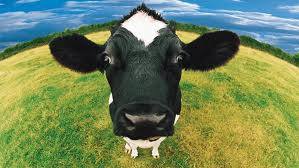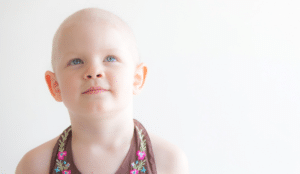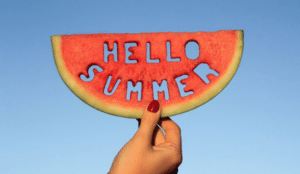There I was, eight coolers filled to the brim with ‘the goods,’ crossing state lines. It wasn’t an illegal pickup, but one almost just as alarming for a former vegetarian. I was transporting a quarter ton of various meat products, including sausage, beef, turkey, pork, and poultry, in my car. It was my turn in our co-op rotation to make the four-hour round trip journey to pick up meat orders from our trusted, natural, grass-fed farm.
A few years ago, this scenario would’ve been unfathomable. How on earth did this happen? It was a question worth revisiting while barreling home on the highway. Meat and I have certainly had a journey.
Hello, vegetarianism
I was raised mostly on meat that came directly from a farmer in our area. My parents would order and freeze a half cow and store pieces in the freezer. The butcher down the road would cut up a pig for my mom.
My growing ambivalence about carnivorism started early. At age 10, I refused to eat meat at fast foods restaurants. Something felt wrong. The picture perfect meat grossed me out. It was such a disconnect with the meat we ate at home. The chicken nuggets finally did me in. I increasingly asserted my independence by making non-beef choices. Thank goodness for the ‘garden salad’ option, when I was out with friends or on school trips and obliged to visit the golden arches.
Next on the proverbial chopping block were pork and poultry. I was watching the aftermath of Hurricane Floyd in September 1999. I will never forget the aerial views of overflowing cesspools from the poultry and pig farms in NC. Game over. It simply churned my stomach and I couldn’t get the images out of my mind.
By the time I was in college, I wasn’t eating much meat at all. I had read Upton Sinclair’s shattering classic, The Jungle, and promptly researched current factory meat industry techniques. From hormones and antibiotics, to corn-and soy-based feed and the chemicals sprayed on grocery store meat to keep it looking fresh, I wasn’t so sure enough had changed.
A few years later, I found myself entertaining in New York’s best steak houses. The prices were stratospheric and my business clients were delighted. Kobe beef was big news back then, but I wasn’t impressed. Who cared if the cow had been massaged with beer before being slaughtered? What did “finest cuts” mean anyway? There was no mention of organic.
I wanted to know more about the meat before I would eat it.
In 2001, my mom was diagnosed with breast cancer. We scoured books, articles, health journals. They all seemed to point towards one thing: remove meat from the diet. A Cancer Battleplan became our health bible, and I became a full-fledged vegetarian to support my mother in this new way of life. I didn’t really have far to go. I was practically there already. I had learned a great deal from my research. Knowledge was power and there was no turning back, I thought.
Dining out was a new experience, and my husband and I enjoyed many of New York’s finest restaurants in a new light. For almost ten years, I remained a vegetarian. Sure, I cared about the animals, but I was more concerned about me! What were they injecting in the meat these days? I didn’t trust anything from mainstream meat producers. I still don’t.
The farm
So… back to the farm-raised meat stocked up to the ceiling of my car. It comes down to this: I will do anything for my children. My first born, a boy, led me down a new path. As I battled his strong will and turbulent moods, I struggled to figure it out. I was a new mom, and at a total loss for what to do.
I tried altering my parenting methods. I researched. I contacted experts and scheduled phone consultations. But I kept returning to his diet. I was hypoglycemic as a child, so we already maintained a sugar-free home. We ate mostly organic, natural food. However, my instincts were telling me that food was somehow still an issue.
The turning point happened when I attended a holistic parenting conference and heard Sally Fallon speak. Sally is the president of The Weston A. Price Foundation (WAPF), a non-profit organization “dedicated to returning nutrient-dense foods to the American diet.”
WAPF and I were diametrically opposed. They believe in organ meats, bone broth, and chicken feet. Ugh. Pretty tough for a vegetarian to go there. But Sally’s words (and her book) struck a chord with me. She talked about nutrient deficiencies in young boys that didn’t eat enough meat. Certain foods needed to be eaten together, and children, especially boys, were subject to mood swings and behavioral issues if they didn’t get the right combinations in their body. Hmmm.
I did what any caring parent would do. I started asking my holistic friends where they bought their meat. A friend, to whom I will always be grateful, shared a wealth of knowledge with me. She told me how she had healed her developmentally delayed son through food. She introduced me to her meat farmer and invited me to place a farm order for my family. Before I knew it, the meat came rolling in.
My first bite? I wish I could say it was memorable; it was anticlimactic. My son’s first bite? Well, he struggled a bit with the texture. Thank goodness for my mother. Although she’s still a vegetarian, she answered all my questions about cooking meat. We started including it in our diet more often. My two oldest children who had spent several years as vegetarians were now happily eating some meat. My third child was four months old and exclusively nursing when we introduced meat into our family. Now three, she always reaches for meat first, at times, in fistfuls.
And if you’re wondering about my turbulent little boy… yes, it’s true that his behaviors improved after he started eating meat. It’s absolutely true that it could’ve been due to the rapidly changing and growing maturity of a 5 year-old boy. But my intuition told me that eating more nutrient-dense foods was making a difference.
The meat debate
There is a lot of support for vegetarianism. There is just as much research for the reasons we should eat meat. This information is readily available from both camps. Since it’s easy to be persuaded by the passionate presentation of facts, I had to keep reminding myself of my primary objective while investigating the debate. I do care about animal rights, world hunger, and the environmental issues of raising meat versus vegetables. But the issue always came back to health, and namely, what I was putting into my and children’s bodies.
There’s more to health than just adhering to a label. Vegetarians who fill their diets with pasta and sugar aren’t healthy. I never pursued imitation meat products because I am not comfortable with the ingredients. Tofu wasn’t in my world for very long. When we eat out, we almost always order vegetarian dishes because I don’t know the source of the meat. Hormone- and antibiotic-laced meat has no place in my children’s bodies. The lobbying power of the meat industry fills me with concern and I prefer to stick with products from my happy, clean farm.
The answer
I’m grateful to have found a farm that meets my standards. Thankfully, my children eat the many vegetables that they are fed each night at dinner. We talk with them about food and ask them to consider what they eat and why. Before long, they will be on their own, making their own choices. If I had had access to clean and organic meat sources when I was younger, I’m not so sure I would have become a vegetarian. I appreciate the argument on both sides, and recognize that different bodies may heal and thrive on different diets. The most important thing is to pay attention. We should listen to our bodies, and ask questions about our food. Now that I can choose where I buy my meat, I’ve learned that my family does better eating it from time to time.
And that’s how I found myself unloading hundreds of pounds of meat from my car on a bright winter’s day, and texting my friends that the ‘goods’ had arrived.
Valeri is Fearless Parent’s Community Initiatives Director. She isn’t afraid to alter her views to nourish her children as much as possible.













Most likely your son’s behavior changes were from lessening gluten and processed grain intake rather than adding meat to his diet. Your article is flawed because those variables were not addressed. As a life long vegan and mother to a 6 year old boy who has never had meat in his life, I can’t help but shake my head in disappointment that you were so easily swayed towards a meat based diet (Weston Price, etc.). Clearly your reasons for becoming vegetarian in the first place were egocentric and not indicative of your philosophy or compassion towards other living beings. If so, you would have explored a vegetarian solution more diligently. Please check out Physicians for Responsible Medicine before you close the door on a vegetarian way of life. Their website may provide some new, useful, and beneficial information.
Thank you for your thoughts, Marghi. We were not heavy ‘carb’ vegetarians, so a decrease in the amount of gluten or grain when meat was introduced wasn’t a factor. As stated, my main reason for becoming a vegetarian was the quality of the food I was putting in my body. I’m also very aware that others have different priorities. I did a great deal of research after I heard Sally Fallon speak, before I embarked down the road of introducing meat to my family. I was doing what was best for my family. I’m glad you are doing what is best for yours. The beauty is that we have a choice.
I found your article to be a well written, unbiased perspective of your journey with food- that is very much appreciated on such a “hot topic”! We have four children and when our youngest daughter got diagnosed with leukemia and I began a long journey of researching holistic health options for her, a vegetarian diet came up repeatedly as the best way to go. Many documentaries and phone calls to doctors across the globe could not confirm one certain path to be best. Your article resonated with me bc we found a nutritionist who specializes in children with ALL leukemia and also was knowledgable about things I already had in practice (soaking grains, gluten free, raw dairy) and she gave me information pointing to the necessity for organic, grass finished protein for my daughter, especially when her white blood cell counts are low. We saw an energy and growth in her that surpassed what I saw in the other children being treated ( as well as tons of veggies and no sugar)! We need to support each other’s commitments to our families health and continue to research the best options for our families.